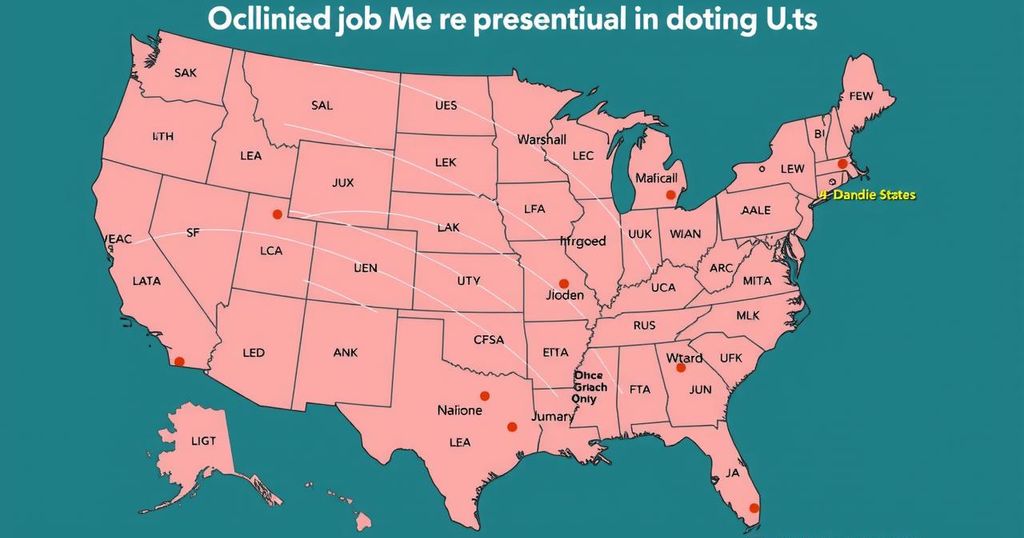Montana’s Agriculture Faces Major Job Losses Due to Climate Change Threats

A report indicates that climate change could lead to significant job losses in Montana’s agricultural sector, primarily affecting the cattle and wheat industries. By 2050, nearly 10,000 jobs and over $181 million in earnings may be at risk due to rising temperatures and adverse weather conditions. Farmers are beginning to adapt their practices, but immediate and collective action is necessary to address these challenges and ensure economic viability for the future.
A recent analysis has highlighted the adverse effects of climate change on Montana’s agricultural sector, predicting significant job losses and economic downturns. Specifically, the cattle and wheat industries may see a reduction of nearly 10,000 jobs and a decline of over $181 million in earnings by the year 2050. Given that 62% of Montana’s land is dedicated to agriculture, which currently supports approximately 29,000 jobs and $450 million in labor earnings, these projections raise serious concerns about the future viability of farming and ranching in the state.
The report indicates that the relevance of Montana’s agricultural sector has diminished over the past two decades, dropping from about 11% to 7% of total jobs in the state. This shift is attributed to unfavorable climatic conditions predicted by the Intergovernmental Panel on Climate Change, with a projected rise in temperatures of 6 degrees Fahrenheit by 2050. Such warming is expected to reduce grain yields by 20%, leading to a loss of nearly 5,000 jobs in grain crops alone, amounting to substantial economic losses. Moreover, cattle ranchers may face similar challenges with food supply affecting nearly 4,514 jobs and resulting in further economic damage.
In response to these challenges, Montana’s agricultural community is already adapting by diversifying crops, such as incorporating pulse crops to enhance soil nitrogen. Notably, the state leads in the production of lentils, dry peas, and chickpeas. However, the anticipated increase in extreme weather conditions and variability in precipitation patterns will ultimately reshape the agricultural landscape, challenging the existing practices and resilience of farmers in the region.
It is imperative to note that the current trajectory necessitates immediate and concerted efforts from both governmental and corporate entities to mitigate climate change. The Paris Agreement advocates for limiting global temperature rise to 1.5 degrees Celsius above pre-industrial levels, a target that requires significant reductions in greenhouse gas emissions. On an individual level, people can contribute by limiting plastic use, adopting public transport, and opting for secondhand shopping. Furthermore, these small yet impactful initiatives can foster progress towards a more sustainable and environmentally conscious future.
The discussion surrounding climate change and its implications for agriculture has grown significantly, particularly highlighting regions such as Montana, where the agricultural sector is essential to both the economy and community welfare. As temperatures rise and weather patterns shift, local farmers and ranchers are confronted with the need to adapt their practices to ensure productivity and economic stability. Understanding these dynamics is crucial for comprehending the broader implications of environmental change on state-level economies and job markets.
In conclusion, the report underscores an urgent need to address climate change as it poses a direct threat to Montana’s economic stability and job market, particularly within the agricultural sector. The potential loss of nearly 10,000 jobs and over $181 million in earnings by 2050 is a clear indicator of the challenges ahead. It is essential for stakeholders to engage in proactive measures to mitigate these effects and support a sustainable agricultural landscape.
Original Source: www.thecooldown.com







